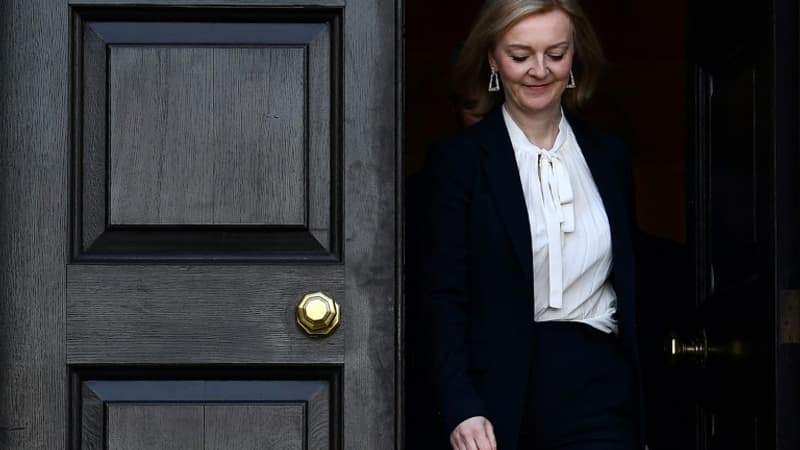Faced with the scale of Britain’s cost-of-living crisis, new Prime Minister Liz Truss promised to announce measures on Thursday but ruled out taxing energy companies to fund them, during her first duel with the opposition leader.
The day after taking office in Downing Street, he assured MPs on Wednesday that he intended to meet the UK’s “challenges” “at a vital time”. He said he would return the next day with a plan to tackle the soaring energy bills that are crushing homes with inflation already in double digits.
Freezing of the energy bill estimated at 200,000 million euros
While keeping quiet about the concrete nature of her projects, Liz Truss, who on the campaign said she preferred tax cuts to redistribution, could decide according to the press to freeze energy bills, which are supposed to increase by 80% to from October.
Such a project could represent a massive cost close to 200 billion euros. But the leader, during the first session of questions to the President of the Government, emphasized her rejection of the exceptional tax on energy companies that Boris Johnson had resolved to help households.
“She is the fourth Conservative prime minister in six years. The face may change but the story remains the same,” he lamented, accusing her of wanting to transfer the weight of her plan to public finances instead of draining corporate profits.
The country can “get out of the storm”
“The truth is that this country will not find its way to growth through taxes. […] but by attracting investment, lowering taxes and acting faster”, responded Liz Truss, quite comfortable in the exercise, highlighting the dangers of taxation “at the same level as France”.
“Deliver” (“Act”), is what Liz Truss, a fervent 47-year-old liberal who regularly claims Margaret Thatcher, has been repeating tirelessly for two months. On Tuesday, during her first speech at 10 Downing Street, she assured that the country could “get out of the storm”, a formula that she repeated on Wednesday in several British newspapers.
Opposition outside the party, skeptics inside
The bet is not won for the former head of diplomacy, especially since she no longer has to convince only the base of the Conservative party that elected her this summer, but address all Britons. She came to power with very low popularity, two years after the legislative elections in which the Labor Party won.
While most Conservative MPs would have preferred his rival Rishi Sunak to become head of government, he too will have to somehow unite a divided party after 12 years in power.
It must also face a social unrest unprecedented since the Thatcher years, strikes have multiplied in recent weeks in many sectors to demand wage increases to match inflation.
Growth, energy crisis and public health system
Just appointed head of government during an audience with Queen Elizabeth II in Scotland, Liz Truss on Tuesday declined her “top three priorities”: “grow the economy” and address “the energy crisis caused by (Vladimir) Putin’s war” as well as the problems of the public health system.
As the dispute with Brussels over Northern Ireland’s post-Brexit status threatens to harden, Liz Truss also said on Wednesday that she was “committed” to working with “all parties” to resolve the crisis, saying she preferred a “solution negotiated”, but warned that he would not accept the status quo, given the political stalemate in the province.
Strong support within the firm.
After campaigning on the far right, Liz Truss surrounded herself in the House of Commons with her loyal supporters whom she appointed to her cabinet, starting with her Chancellor of the Exchequer, Kwasi Kwarteng, hitherto head of Business and Energy and a supporter of like her from a State with little intervention and a market economy.
For the first time, the top three cabinet posts will be filled by elected members of diversity, but they went through the classic private education of the British elite. In addition to the Chancellor of the Exchequer, Foreign Secretary James Cleverly has maternal roots in Sierra Leone, and Home Secretary Suella Braverman is of Indian descent.
Source: BFM TV


